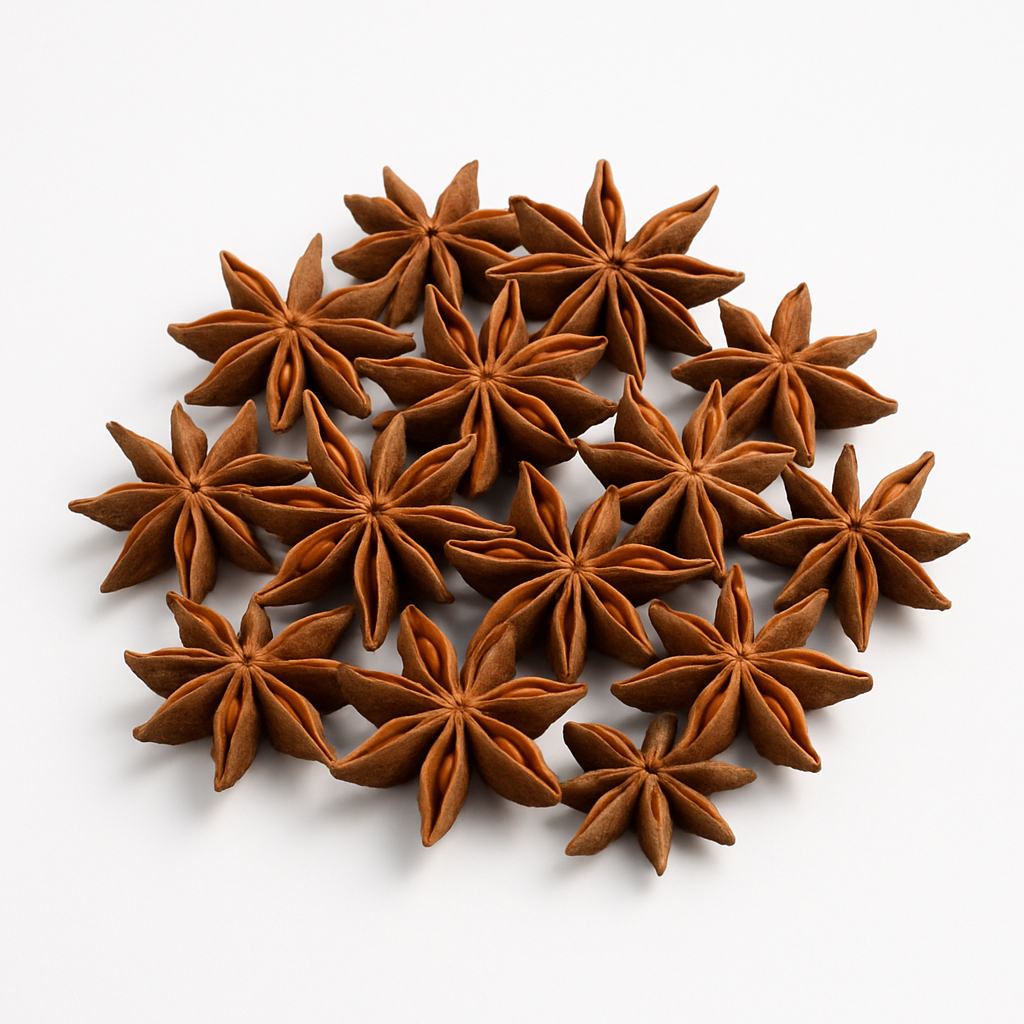Wadi
Star anise
Star anise
Couldn't load pickup availability
Primary Uses:
1. Culinary:
- Used in soups and stews
- Used in marinades for meat
- Used in pickling recipes
2. Flavoring:
- Used in baking, particularly in gingerbread and other spiced cakes
- Used in making chai tea
- Used in making mulled wine or cider
3. Aroma:
- Used in potpourri and other home fragrances
- Used in making scented candles
- Used in aromatherapy blends for relaxation and stress relief
Other Uses:
1. Medicinal uses: Star anise is used in traditional Chinese medicine to treat digestive issues such as bloating, gas, and indigestion. It is also used as a natural remedy for coughs and colds.
2. Culinary garnish: Star anise is commonly used as a spice in Asian cuisine, particularly in Chinese and Vietnamese dishes. It adds a sweet and licorice-like flavor to soups, stews, and marinades.
3. Insect repellent: Star anise oil is used as a natural insect repellent, particularly against mosquitoes and other flying insects.
4. Dyeing agent: The seeds of star anise can be used to create a natural dye that produces a range of colors from yellow to brown.
5. Ornamental uses: Star anise is often used in potpourri and other decorative arrangements due to its unique shape and pleasant aroma.
6. Religious uses: Star anise is used in some religious ceremonies and rituals, particularly in Chinese and Vietnamese cultures.
7. Folklore uses: In some cultures, star anise is believed to have mystical or magical properties, and is used in various folk remedies and rituals.
Caution:
1. Toxicity: Star anise contains a compound called safrole, which can be toxic in large amounts and may cause liver damage.
2. Allergic reactions: Some people may be allergic to star anise, which can cause symptoms such as itching, swelling, and difficulty breathing.
3. Interactions with medications: Star anise may interact with certain medications, such as blood thinners and antiplatelet drugs, and may increase the risk of bleeding.
4. Pregnancy and breastfeeding: Star anise is not recommended for pregnant or breastfeeding women, as it may cause uterine contractions and affect milk production.
5. Contamination: Star anise may be contaminated with other substances, such as Japanese star anise, which can be toxic and cause seizures and other serious health problems.
6. Overconsumption: Consuming too much star anise may cause nausea, vomiting, and diarrhea, and may also lead to dehydration and electrolyte imbalances.
7. Misidentification: Star anise may be mistaken for other plants, such as Japanese star anise or Chinese star anise, which can be toxic and cause serious health problems.
Share


